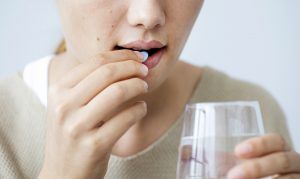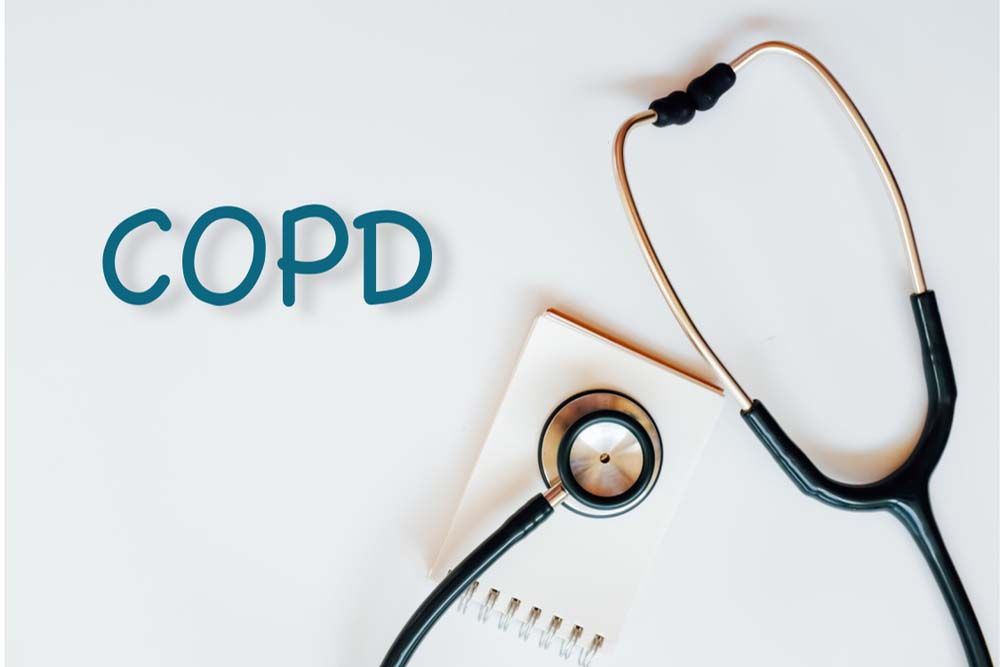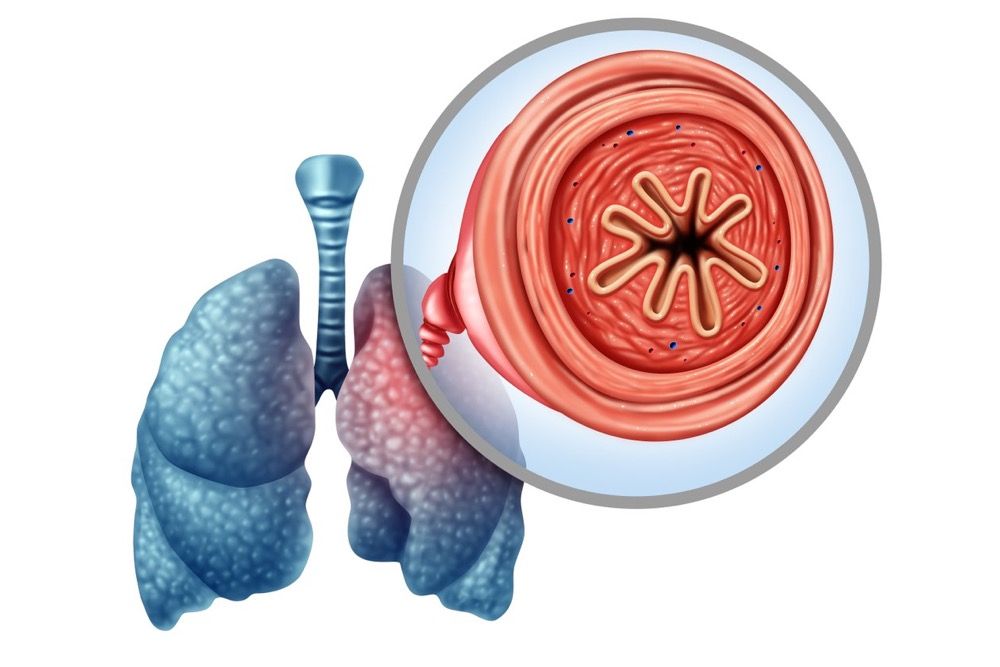Chronic obstructive pulmonary disease (COPD) is formed by two primary diseases: emphysema and bronchitis.
Though there are several factors that influence who gets COPD, smoking is known to increase your risk of developing it. (Learn More)
You must be properly diagnosed with COPD. Your doctor may listen to your heartbeat, ask you to blow into a machine for a spirometry test that gauges your lung capacity, or order a CT scan to confirm results. (Learn More)
If you are diagnosed with COPD, you should know the disease can only be managed, but not cured. (Learn More) Your doctor will provide treatments like antibiotics or oxygen assistance, depending on the severity of your symptoms.
There may be a link between COPD and lung cancer. (Learn More) But many patients can expect a positive outlook even with COPD, provided they take care of themselves and follow their doctors’ advice. (Learn More)
Medications for COPD Treatment

Your doctor will first provide you with a formal diagnosis of COPD. Treatments for COPD usually start with:
- Long-term antibiotics. These are prescribed if you develop an infection in your respiratory airway.
- Anti-inflammatory drugs. These decrease inflammation in your airways.
- Rescue drugs. These drugs get their name because they quickly help you feel better. You may take them when you have difficulty breathing or when you cannot stop coughing or wheezing. Many of these drugs stay in your system for a short time, and some people use them prior to exercise.
Example of rescue drugs are:- Per Mayo Clinic, this prescription medication is breathed into the lungs to assist with breathing. It belongs to a category of drugs called adrenergic bronchodilators and alleviates wheezing, coughing, and shortness of breath.
- This medication treats coughing, wheezing, and difficulty breathing associated with lung diseases such as COPD or asthma. It is inhaled through the mouth using a special machine that turns the medication into mist (jet nebulizer). It can be used before exercising and must be used exactly as your doctor indicates.
- Albuterol along with ipratropium. This combination medication is a bronchodilator that you must breathe in through the mouth, as explained by Mayo Clinic. It is sold as a solution, spray, or aerosol. It manages symptoms of asthma, chronic bronchitis, emphysema, and COPD.
- Control medicines. These medications must be taken every day in order to work properly. They manage or prevent symptoms of COPD. They work by:
- Decreasing inflammation in the airways.
- Soothing muscles in the airways.
- Assisting with lung functions.
Some control medicines available today are:
- Anticholinergic inhalers. These must be used every day. They open up the airways to facilitate breathing.
- Beta agonist inhalers. Beta agonist medications stimulate beta cells. This enables these cells to open up your respiratory system and allow you to breathe more easily. They can be in your system for a long time (long acting) or a short time (short acting).
- This antibiotic is sold as a tablet, but it is also available in a suspension liquid. The medication treats bronchitis, certain bacterial infections, and even some STDS.
- Combination inhaled medicines. These medications are combinations of drugs. They are meant to help you breathe more easily and can be useful if inhalers with only one medication are not effective. Use them as directed. Healthline explains that these medicines typically combine a corticosteroid and a bronchodilator or two bronchodilators.
- Inhaled corticosteroids. Unlike other inhalers that can help you breathe easier immediately, corticosteroids must be used to prevent breathing issues. Mayo Clinic says corticosteroids prevent your body from releasing chemicals that may cause breathing difficulties.
- Phosphodiesterase inhibitor. These medications decrease inflammation in people who have difficulty breathing. They manage symptoms of COPD, but do not cure it.
These medications are best suited for difficult cases of COPD, as they inhibit the release of an enzyme called phosphodiesterase-4 (PDE4). Many people with COPD have excess PDE4, so inhibiting its production can assist with inflammation that makes breathing more difficult.
Lifestyle Changes and Alternative Management

In addition to medications and therapies, lifestyle changes can reduce the symptoms of COPD. Changes known to improve your quality of life are:
- Quitting smoking. In developed countries, smoking is linked to cases of COPD. You can better manage your symptoms if you quit smoking.
- Avoiding irritants. Stay away from fireplaces, certain chemicals, or inhalants to prevent your symptoms from getting worse.
- A healthy diet. Getting the right nutrients in your body can boost your immune system and decrease inflammation. Focus on decreasing your consumption of sugar and red meat while increasing your intake of fruits, vegetables, nuts, and fish.
- Preventing infections. Certain infections can make breathing difficult and worsen the symptoms of COPD. Get the flu shot, wash your hands thoroughly, and be prepared to proactively use hand sanitizer.
- Regular exercise. In addition to other benefits, exercise may increase your breathing capacity.
- Emotional support. Some people with COPD may have neglected emotional issues, such as depression or anxiety. Meditation, therapy, or support groups may provide emotional benefits that positively affect your help. A qualified doctor can also provide a prescription for an antidepressant if needed.
Frequently Asked Questions
What does COPD consist of?
COPD is often a combination of chronic bronchitis and emphysema. Both of these health conditions cause you to cough, wheeze, or experience breathing difficulties.
If I smoke, will I develop COPD?
Smoking does not mean you will definitely receive a COPD diagnosis, but you are more likely to suffer from this ailment if you smoke cigarettes.
How is COPD diagnosed?
Your doctor may listen to your heartbeat and perform several tests to confirm the diagnosis. This may include a breathing test with a spirometry machine, an x-ray, or a CT scan to confirm.
How is COPD treated?
COPD is managed with a variety of medications, such as inhaled medications and antibiotics. The medication you receive depends on the severity of your symptoms. Oxygen therapy may be necessary, and your doctor will suggest lifestyle changes for ease of management.
Does COPD lead to lung cancer?
Not necessarily, but Healthline explains that some COPD patients eventually develop lung cancer. If you have COPD, you are more likely to develop lung cancer if you smoke. Research shows that genes may also determine your likelihood of developing either ailment.
What can I expect if I am diagnosed with COPD?
Expect to be prescribed suitable medication as necessary for the severity of your symptoms. You may require quick-acting medication for instant relief of breathing difficulties or medication to prevent inflammation. You may even get oxygen therapy as needed.
There are no cures for COPD, but if you follow your doctor’s suggestions, take your medication, and make a few lifestyle changes, you can expect to live a productive life.
References
Chronic Obstructive Pulmonary Disease. (COPD). (May 28, 2018). MedlinePlus.
Everything You Need to Know About Chronic Obstructive Pulmonary Disease (COPD). (November 4, 2018). Healthline.
How Is COPD Treated? (March 13, 2019). American Lung Association.
COPD Drugs: A List of Medications to Help Relieve Your Symptoms. (November 9, 2018). Healthline.
COPD. (August 11, 2017). Mayo Clinic.
Lifestyle Changes to Help Manage COPD. (March 17, 2017). Healthline.
COPD Quick-Release Drugs. (February 18, 2018). MedlinePlus.
COPD Control Drugs. (February 18, 2018). MedlinePlus.
Levalbuterol (Inhalation Route). (February 1, 2019). Mayo Clinic.
Albuterol Oral Inhalation. (February 15, 2016). Medline Plus.
Ipratoprium and Albuterol (Inhalation Route). (April 1, 2019). Mayo Clinic.
13 Common COPD Inhalers in the Market. (April 5, 2019). Verywell Health.
Beta 2 Agonists in Asthma. (June 27, 2018). Verywell Health.
Azithromycin. (May 15, 2019). MedlinePlus.
Corticosteroid (Inhalation Route). (April 1, 2019). Mayo Clinic.
Daliresp or Roflumilast for COPD. (February 22, 2018). Verywell Health.



